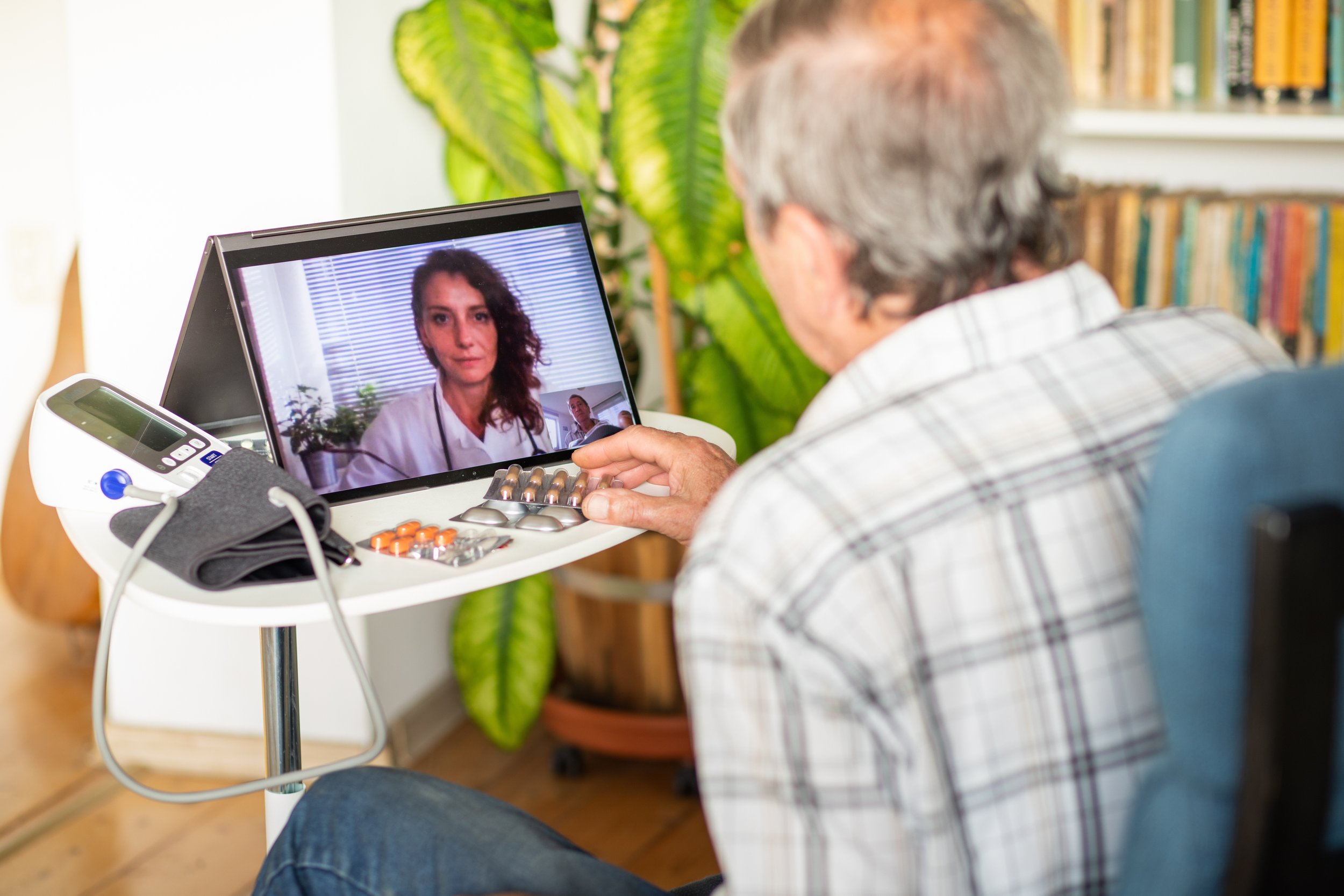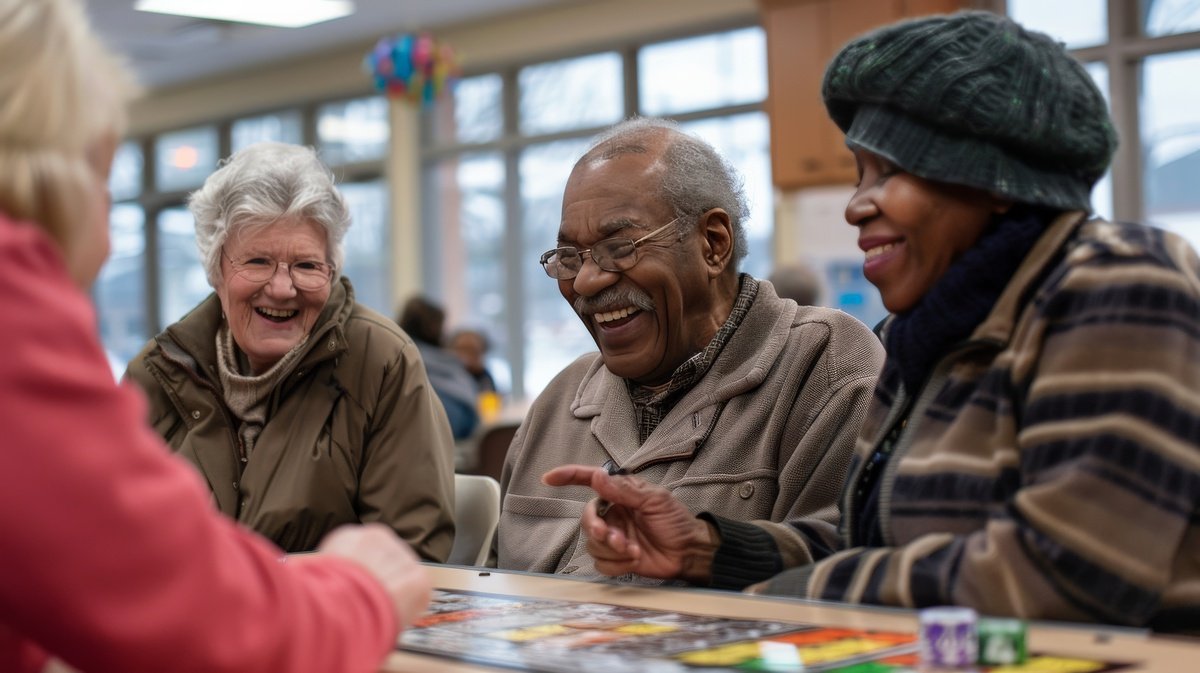According to Maslow’s hierarchy of needs, humans must have intimate relationships to have a sense of belonging and to meet psychological needs. Yes, some of us may need more time socializing than others. We can have tendencies to be more introverted or extroverted, but we still need to have some sort of connection to others in order live a fulfilling life.
During the COVID-19 pandemic we have seen the loss of this contact and have had to be creative in finding ways to safely connect with others via facetime, social media, phone calls, or by attending small, outdoor gatherings. Even going to the grocery store or waving to a neighbor helps meet this need for socialization.
For many elders, even simple trips to the grocery store, seeing a son or daughter, or going outside for a walk is not an option. Technology may also pose a challenge (having access, knowing how to use it). Which leads me to wonder – what happens when we are no longer able to have that human connection?
Healthcare workers, including our team at ElderTree, have seen it first-hand working directly with elders during COVID-19. Health and well-being and quality of life plummet; depression and feelings of isolation increase; and the most devastating result is that without socialization and opportunities for belonging, elders fail to thrive and lose the will to live.
COVID-19 has shown us the sad truth of what happens when humans lose this opportunity for contact. All of us have experienced some type of grief throughout the global pandemic, but elders seem to have been hit the hardest.
Many senior living communities have done their best to act fast and find solutions to ensure that elders have the opportunity to socialize with family and friends. From window visits to facetime or other forms of video calls, it has been amazing what we’ve come up with in such a short time. However, now that the pandemic has continued throughout this entire year with no end date in sight, it’s time to act now and really utilize technology to its fullest potential to enable social connection.
Now more than ever we have seen how important it is for seniors to have access to a tablet, cell phone, and/or computer… but the older generation did not grow up with this technology and many, especially those with mild to severe cognitive impairment, need assistance. “Who will assist?” so often becomes the big question. Along with “How will the elder access or afford the technology needed to increase social connection?”
There are many options. Eldertree focused on technological devices which emphasize social connection. With devices such as Grandpads, elders have the ability to utilize user friendly technology to video call families with a 24/7 help line.
Zoom has also allowed for more ways to connect virtually. There are online yoga classes, support groups, community meetings, and of course – connecting with loved ones for celebrations such as birthday parties, anniversaries, and even weddings online!
Other ways to find connection:
-
Call on the phone (set a weekly day and time)
-
Digital picture frames that can have photos uploaded right from your smart phone to the elder’s frame
-
Adopt an animal – animals make the sweetest companions!
-
Set up outdoor and/or window visits
-
Pen Pal Programs/Adopt a Grandparent, writing letters, sending pictures (ex: artwork made by grandchildren)
-
Join Virtual Groups: Support Groups, Societies, Community Service, Exercise Classes, Online Learning Courses, etc.
-
Make signs or posters to display outside window or community
-
Send goodie bags with their favorite things (snacks, lotions, books, fuzzy socks)
-
Send a recording of yourself to your loved ones directly or to their community volunteer coordinator/activity director
Remember, anything you can do is better than doing nothing at all! Just knowing that one is being thought of can significantly increase feelings of self-worth, love, belonging, and meaningful connection!
Stay healthy, happy, and connected!
Share This Article



